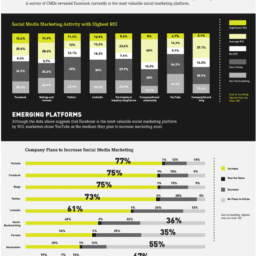
Social media optimization (SMO) was originally designed to drive traffic from social media sites such as bookmarking sites and social networks. However, SMO is now significantly more important and not simply because social networking has grown but because SMO also improves SEO performance. Good SMO will drive traffic from both direct social site referrals and from search engines.
The Origin of SMO
Social media optimization (SMO) was first used in 2006 by Rohit Bhargava in his article the 5 rules of social media optimization. At this time the core focus was driving traffic to websites from social sites.
This remains the core purpose of SMO as outlined in Wikipedia “SMO is similar to search engine optimization in that the goal is to generate traffic and awareness for a website. In general, social media optimization refers to optimizing a website and its content in terms of sharing across social media and networking sites.”
The SEO Shift
In Rohit’s initial article the focus of SMO was on linkability, portable content and easy bookmarking. This has changed over the years as social networks have changed and also as search engines have looked to social signals to help rank content. Wikipedia says “social media optimization is becoming increasingly important for search engine optimization, as search engines are increasingly utilizing the recommendations of users of social networks such as Facebook, Twitter, and Google+ to rank pages in the search engine result pages.”
Arguably traditional SEO focused on the technical structure of websites rather than the user experience or even the quality of content itself. SMO is very concerned with the quality of the content, the authority of the author and the user experience of interacting with the content and the author. These aspects of SMO can help improve SEO performance as search engines increasingly look for social signals to aid the ranking of pages.
This was highlighted very clearly by Joshua Berg and Mark Traphagen in a recent Google+ hangout on SMO and SEO. Joshua and Mark are two of the most knowledgeable people in this area and both commented on the growing importance of the social web to search engines. Joshua Berg commented that “social signals provide a much better way of filtering out the noise and improving the quality of search results” and Mark Traphagen agreed that “as the social web emerges it provides a better set of signals about what is valuable on the web.”
This was reinforced in a post last week by Dustin Stout. He concludes “social proof is now being factored into search engine rankings. There are various studies that have been done on this, but all of them agree that the more social shares a website or blog post has, the better it is likely to rank.”















